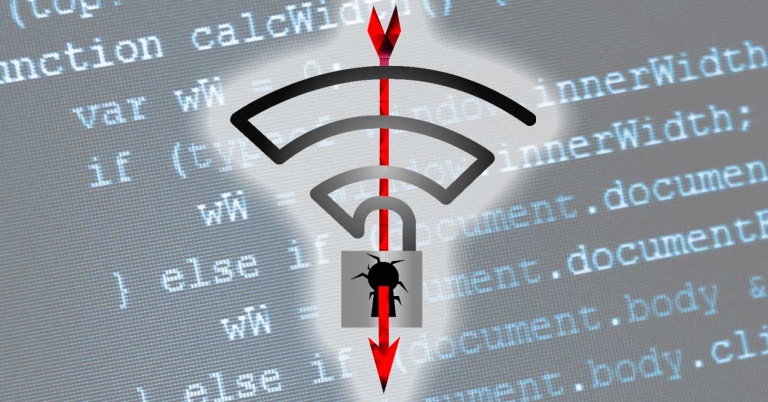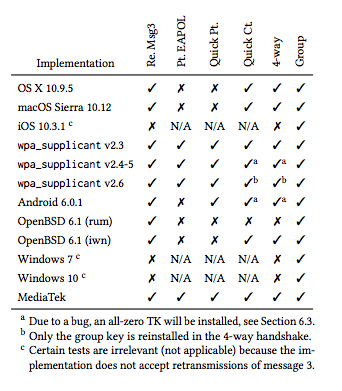segun veo en el mailing de Debian , ya liberaron parches para bloquear el ataque en los servicios relacionados:
Debian Security Advisory DSA-3999-1
[email protected]
https://www.debian.org/security/ Yves-Alexis Perez
October 16, 2017
https://www.debian.org/security/faq
- -------------------------------------------------------------------------
Package : wpa
CVE ID : CVE-2017-13077 CVE-2017-13078 CVE-2017-13079 CVE-2017-13080
CVE-2017-13081 CVE-2017-13082 CVE-2017-13086 CVE-2017-13087
CVE-2017-13088
Mathy Vanhoef of the imec-DistriNet research group of KU Leuven discovered
multiple vulnerabilities in the WPA protocol, used for authentication in
wireless networks. Those vulnerabilities applies to both the access point
(implemented in hostapd) and the station (implemented in wpa_supplicant).
An attacker exploiting the vulnerabilities could force the vulnerable system to
reuse cryptographic session keys, enabling a range of cryptographic attacks
against the ciphers used in WPA1 and WPA2.
More information can be found in the researchers's paper, Key Reinstallation
Attacks: Forcing Nonce Reuse in WPA2.
CVE-2017-13077: reinstallation of the pairwise key in the Four-way handshake
CVE-2017-13078: reinstallation of the group key in the Four-way handshake
CVE-2017-13079: reinstallation of the integrity group key in the Four-way
handshake
CVE-2017-13080: reinstallation of the group key in the Group Key handshake
CVE-2017-13081: reinstallation of the integrity group key in the Group Key
handshake
CVE-2017-13082: accepting a retransmitted Fast BSS Transition Reassociation
Request and reinstalling the pairwise key while processing it
CVE-2017-13086: reinstallation of the Tunneled Direct-Link Setup (TDLS) PeerKey
(TPK) key in the TDLS handshake
CVE-2017-13087: reinstallation of the group key (GTK) when processing a
Wireless Network Management (WNM) Sleep Mode Response frame
CVE-2017-13088: reinstallation of the integrity group key (IGTK) when
processing a Wireless Network Management (WNM) Sleep Mode
Response frame
For the oldstable distribution (jessie), these problems have been fixed
in version 2.3-1+deb8u5.
For the stable distribution (stretch), these problems have been fixed in
version 2:2.4-1+deb9u1.
For the testing distribution (buster), these problems have been fixed
in version 2:2.4-1.1.
For the unstable distribution (sid), these problems have been fixed in
version 2:2.4-1.1.
We recommend that you upgrade your wpa packages.
Further information about Debian Security Advisories, how to apply
these updates to your system and frequently asked questions can be
found at:
https://www.debian.org/security/
Mailing list:
[email protected]
y según me comentaban externamente, Ubiquiti también esta lanzando actualizaciones

 )
)

